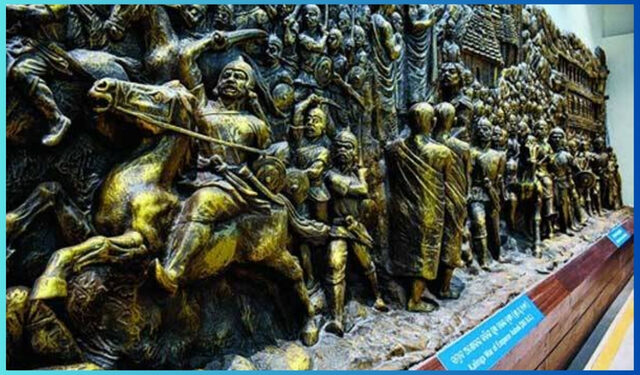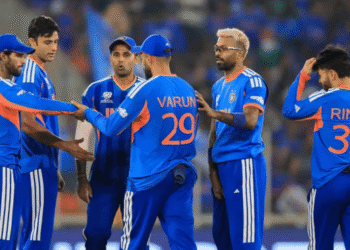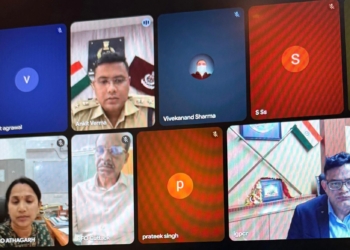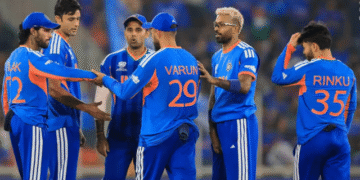A storm of controversy surrounding the exclusion of the Paika Rebellion from the National Council of Educational Research and Training (NCERT) Class VIII Social Science textbook has been partially quelled with an official clarification.
The NCERT has confirmed that the historic 1817 uprising in Odisha, led by the valiant Paikas against British colonial rule, will feature in the second volume of the textbook, slated for release between September and October 2025.
This announcement comes in response to widespread concern raised by former Odisha Chief Minister Naveen Patnaik and other stakeholders. The Paika Rebellion, often regarded as a precursor to India’s freedom struggle, took place nearly 40 years before the 1857 Sepoy Mutiny.
Led by Bakshi Jagabandhu Bidyadhar Mohapatra Bharamarbar Rai, the Paikas—a class of peasant militias—rose against British oppression following the loss of their hereditary rent-free lands and traditional status. The uprising, which saw widespread support from rajas, zamindars, and peasants, marked a significant moment in Odisha’s history and has long been advocated by Patnaik as India’s first war of independence.
The controversy erupted earlier this week when media reports and social media posts suggested that the rebellion had been dropped from the curriculum, prompting sharp criticism. Patnaik took to X on Tuesday, labelling the omission a “huge dishonour” to the Paikas and urging action from Chief Minister Mohan Majhi and Union Education Minister Dharmendra Pradhan. However, NCERT’s press release clarified that only the first volume of the textbook has been released, with the second volume—currently in its final stages of development—set to include the Paika Rebellion alongside other regional resistance movements.
RELATED STORY⇒: Paika Rebellion Removed from NCERT Books: Naveen Patnaik Demands Restoration
School & Mass Education Minister Nityananda Gond reinforced this stance in a detailed X post, emphasising the rebellion’s role in fostering national consciousness. He praised Prime Minister Narendra Modi’s vision under the National Education Policy (NEP) 2020 to celebrate unsung heroes and integrate their stories into education. Gond dismissed media reports as “preposterous and untrue,” highlighting Modi’s efforts to honour Odisha’s valorous history, including the 2017 issuance of a commemorative coin and postage stamp for the rebellion.
The grit, determination and valour of the Paikas was a most-significant event in the history of Odisha and one of the earliest uprisings against British colonialism. The indomitable spirit of the Paikas is a matter of great pride for not just Odias but all Indians. The Paika… https://t.co/Cjv8n7wF9w pic.twitter.com/IRar7CypXT
— Nityananda Gond (@NityanandaBJP) July 22, 2025
The clarification has sparked mixed reactions. While some view it as a step toward rectifying historical oversights, others question the initial exclusion and demand transparency in the curriculum development process.
BJD’s Dr. Sasmit Patra, a vocal critic and Rajya Sabha MP, countered the official narrative in an X post, calling the NCERT’s explanation a “feeble excuse.” He argued that the initial exclusion of the Paika Rebellion from the first volume was a deliberate downgrade, questioning why a movement predating the 1857 uprising by 40 years was relegated to a “regional footnote” in the second volume. Patra demanded transparency, asking what assurances exist that the rebellion will be given its due prominence, and criticized the silence of Odisha’s BJP leaders, including Mahaling and Gond, on this historical distortion.
What a feeble excuse.
First, they excluded it. Now, they claim it will be covered under “regional rebellions” in Part 2. That’s not a clarification ; it’s a self-inflicted contradiction.Let’s set the record straight: The Paika Rebellion of 1817 is not a regional footnote ; it… https://t.co/3pDhGONgwj
— ଡ଼ଃ ସସ୍ମିତ ପାତ୍ର I Dr. Sasmit Patra (@sasmitpatra) July 22, 2025
Bhrugu Baxipatra, another prominent voice, took to X to challenge the assertions of Minister Mahaling and Gond, accusing them of downplaying the gravity of the situation. He labelled the NCERT’s delay in including the Paika Rebellion as an “insult to the valour and sacrifice of the Paikas,” contradicting their claims of a seamless process. Baxipatra questioned the BJP’s “Asmita” election narrative, suggesting that the party’s leaders were complicit in undermining Odisha’s pride by not ensuring the rebellion’s immediate inclusion, thus fueling the ongoing debate over historical representation.
As the second volume nears completion, the focus now shifts to how the Paika Rebellion will be portrayed. With NEP 2020 emphasising rooted and futuristic education, the inclusion promises to shed light on a pivotal chapter of India’s colonial resistance, ensuring the Paikas’ legacy endures in the nation’s educational narrative.






























